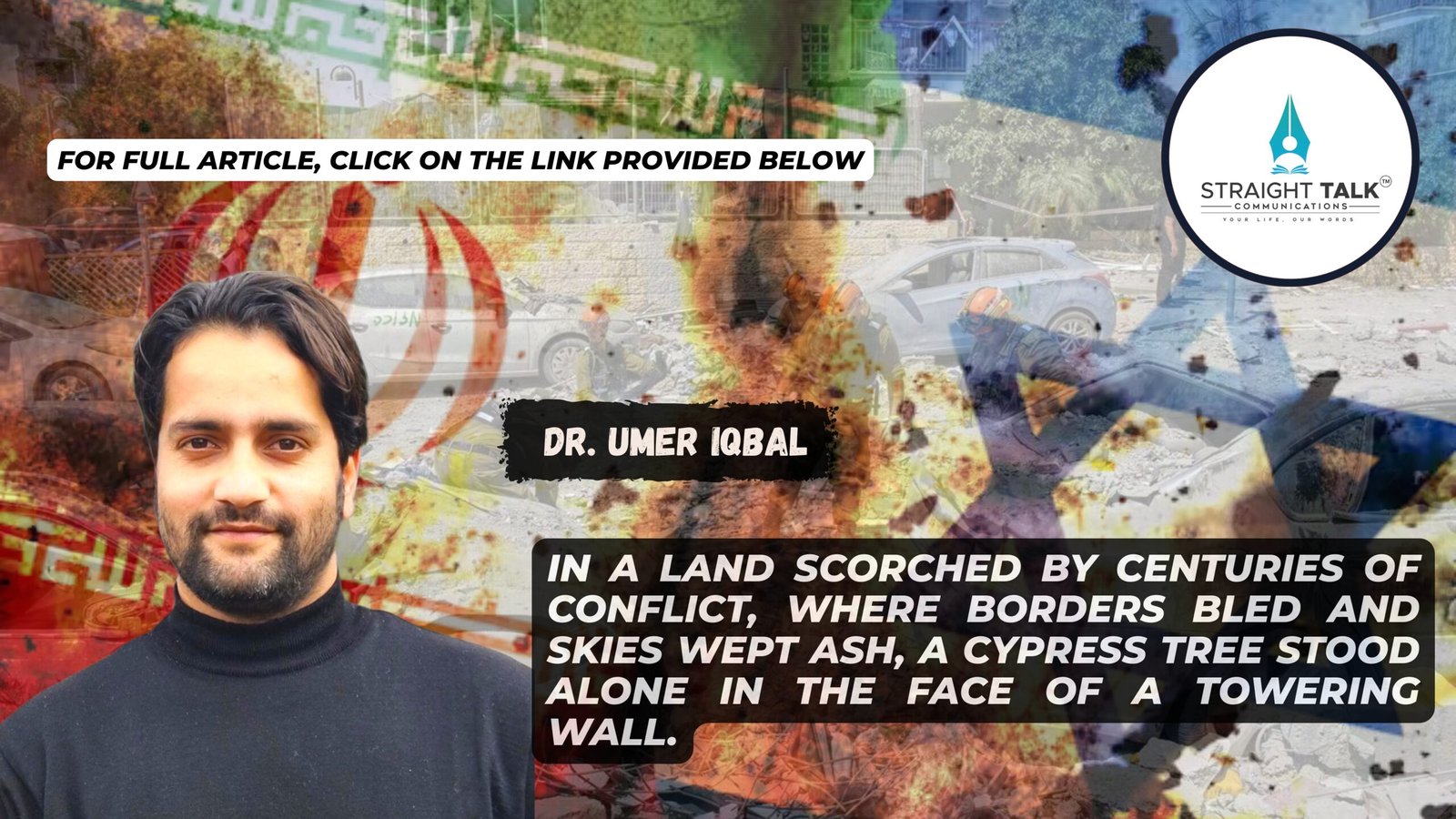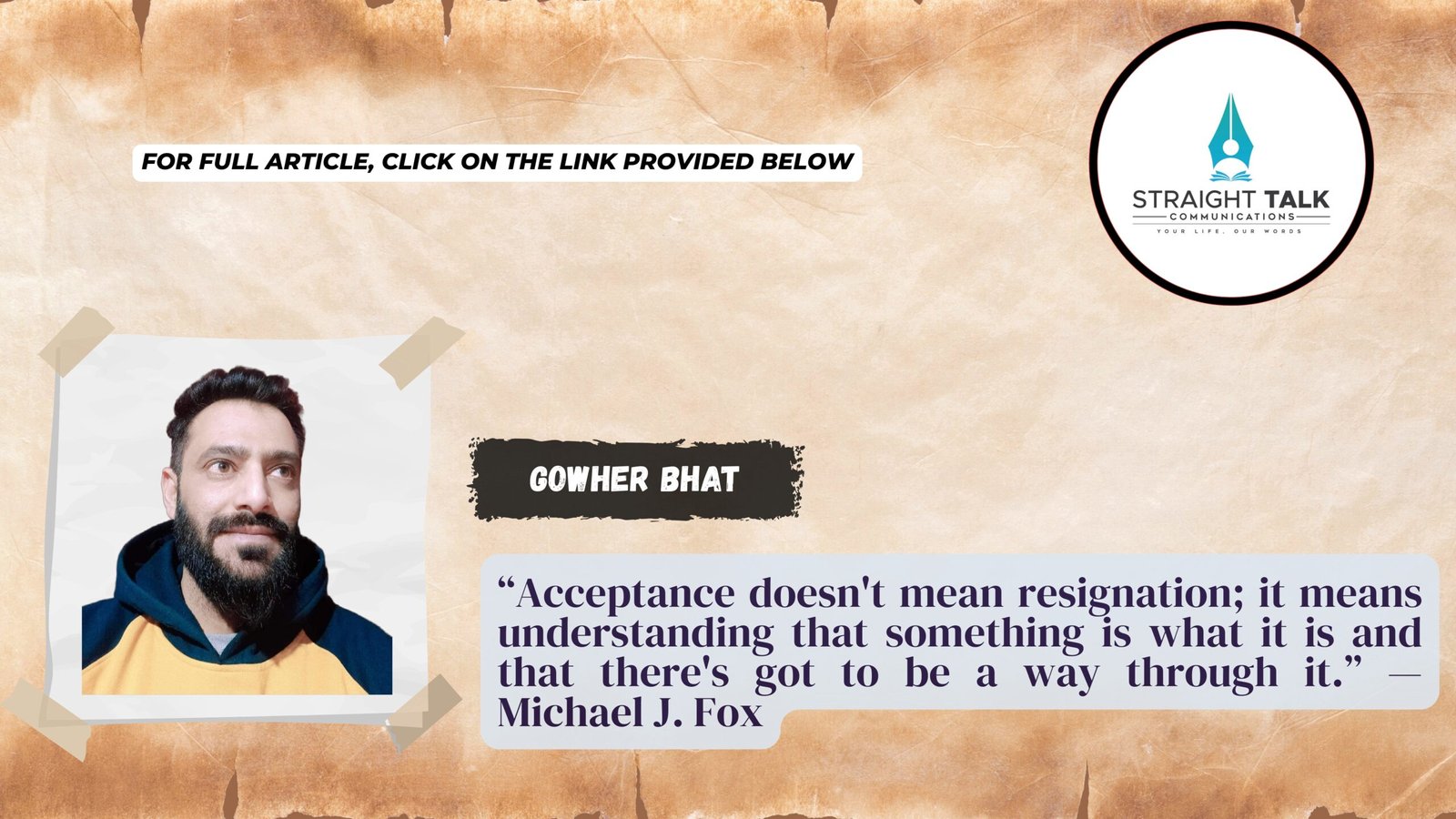Cypress Rises as Walls Fall

Dr Umer Iqbal
In a land scorched by centuries of conflict, where borders bled and skies wept ash, a cypress tree stood alone in the face of a towering wall. This is the story of that tree, of roots deeper than the wall, and of winds that could not be stopped.
Chapter I: The Wall of Iron
Some decades ago, in a land between deserts and seas, people built a wall. This wall wasn’t made only of concrete and steel, it was made of fear, and silence. It cut through lands once shared, dividing homes, hearts, and histories.
Behind the wall lived a people who believed themselves chosen, and beyond it, others who were treated as shadows, watched, judged, killed and forgotten. Resistance rose, not with armies at first, but with songs, with poems whispered across checkpoints, and with olive branches carried like flags.
Yet the wall grew higher.
Chapter II: The Cypress Stands
In the East, where ancient empires once danced on silk roads, stood the Cypress, a symbol of Iran. Though battered by sanctions, sabotage, and smear, it refused to bow. The cypress had stood for millennia through invasions and revolutions, its roots entangled with fire and faith.
Iran, like the cypress, would not bend.
It saw the wall and heard the cries of those pressed against it. It sent words, warnings, and sometimes weapons. It gave sanctuary to the wounded spirits of resistance, not always cleanly, not always perfectly, but persistently.
Israel, the wall’s keeper, called this defiance “aggression.” But the cypress called it duty.
Chapter III: The Seeds of Defiance
Where once drones flew, now came birds. The oppressed, taught to be silent, began to speak in new languages, in digital code, in resistance art, in international courts. Youth in Gaza and the West Bank, in Lebanon and Damascus, began to believe again, not just in politics, but in the power of unity.
Iran, often demonised, misunderstood, misrepresented, became a source of moral resistance to many. It didn’t fight with missiles; it fought with resolve. It armed minds, fed rebellions of thought, and refused to accept a world where one people could dominate another without accountability.
Though battered by internal struggles and international scorn, it held firm, refusing to normalise what it called occupation.
Chapter IV: The Wall Cracks
Walls are not eternal.
What oppression cannot see is that for every wall built, a hundred stories are born. Cracks formed not just in concrete, but in conscience.
And the cypress? It grew taller.
From Tehran to Ramallah, from Qom to Jerusalem, a cry arose, not for the fall of a people, but for the fall of injustice.
It was not Iran’s weapons that won. It was its refusal to forget. Its unyielding belief that time, history, and justice are stronger than any war machine.
Chapter V: Beyond Victory
This was not a victory of Iran over Israel. It was a victory of humanity over silence. Of resistance over resignation. Of trees over walls.
In the ruins of conflict, children from both sides would someday play where watchtowers once stood. They would not ask who won. They would ask who dared to retaliate when the world especially the Muslim countries were in deep slumber. And in the distance, the cypress would still be there: watching, weathered, and tall.
May we always choose the stories that plant forests, not fences.
(Dr Umer Iqbal is Editor Straight Talk Communications. He can be mailed at: editor@straight-talk-communications.com)







